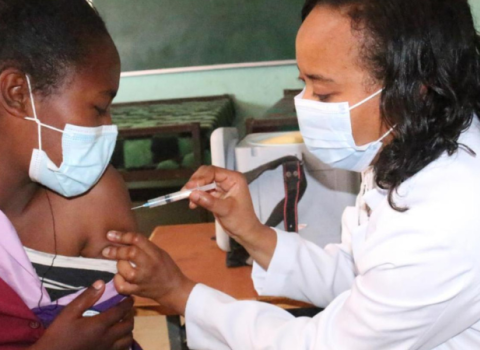New drug target
Researchers from the Flanders Institute for Biotechnology (VIB) connected to the Katholieke Universiteit Leuven have identified a new target implicated in the development of some 10 per cent of cases of T-cell acute lymphoblastic leukaemia (T-ALL). The scientists have discovered that patients in this subset have a duplication of a gene MYB, which they believe is an important drug target.
T-ALL occurs only when defects occur in several genes simultaneously. Idoya Lahortiga and Jan Cools, working with colleagues from Ghent and Rotterdam, have identified MYB as a major player in certain T-ALL cases.
Studying the DNA of 107 patients, they found that the MYB gene was duplicated in 9 of them, resulting in increased concentrations of the transcription factor MYB, which is important for the proliferation, survival and differentiation of the precursor cells that precede the formation of blood cells. MYB is also implicated in several other forms of cancer.
When the researchers suppressed the expression of MYB in T-ALL cell lines this produced a limited – but therapeutically significant – effect on the cancer cells.
Suppressing both MYB and the gene NOTCH1 at the same time had an even greater effect. NOTCH1 has recently been identified as contributing the development of nearly 70 per cent of T-ALL cases, and the effect of NOTCH1 inhibition is currently being tested on T-ALL patients.
But NOTCH1 inhibitors turn out to have toxic side effects. The VIB researchers now hope to develop a combination therapy – in which the concentration of the toxic NOTCH1 inhibitors is reduced – for the group of patients in whom both MYB and NOTCH1 play a role.





 A unique international forum for public research organisations and companies to connect their external engagement with strategic interests around their R&D system.
A unique international forum for public research organisations and companies to connect their external engagement with strategic interests around their R&D system.